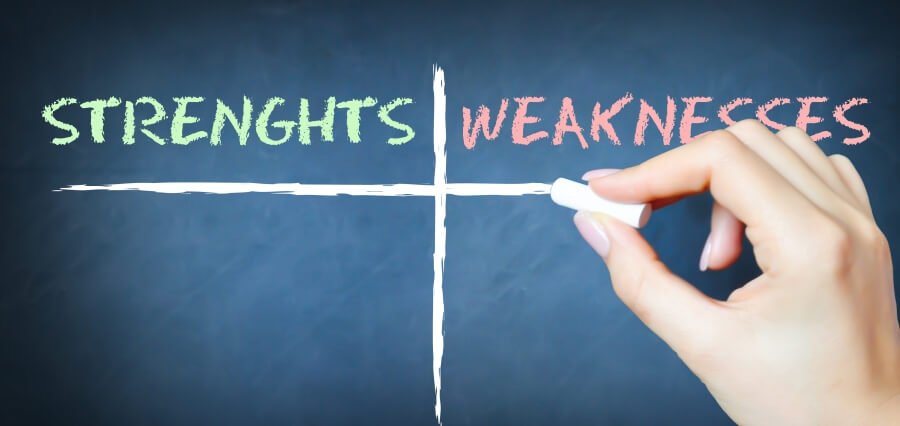Managing Oneself!
The role of a CEO is both challenging and multifaceted. Leading a company requires a unique set of skills, and self-awareness is paramount for success. CEOs who possess a keen understanding of their strengths and weaknesses can strategically leverage these insights to navigate the complexities of leadership.
In this article, we delve into the importance of understanding and exploring how to identify strengths and weaknesses and discuss strategies for harnessing these insights to drive success.
The Significance of Self-Awareness
Self-awareness is the cornerstone of effective leadership. For CEOs, this means having a deep understanding of one’s strengths, weaknesses, values, and motivations. It goes beyond merely acknowledging personal traits; it involves a continuous process of reflection and assessment.
When a CEO is self-aware, they can make more informed decisions, communicate more effectively, and build stronger relationships with their team. Additionally, self-aware leaders are better equipped to adapt to change, foster a positive work culture, and inspire others to reach their full potential.
Identifying CEO Strengths
Recognizing and understanding strengths is a crucial aspect of self-awareness. CEOs often possess a diverse array of strengths that contribute to their leadership effectiveness. Some common strengths include:
- Visionary Leadership: CEOs with a strong visionary outlook can inspire their teams by articulating a compelling future for the company. They possess the ability to set a clear direction and motivate others to work towards common goals.
- Strategic Thinking: CEOs who excel in strategic thinking can navigate complex business landscapes. They have a knack for analyzing situations, anticipating trends, and making decisions that align with long-term organizational objectives.
- Effective Communication: Communication is a key leadership skill. CEOs who excel in this area can articulate their vision, provide clear expectations, and foster open dialogue within the organization.
- Decisiveness: The ability to make timely and effective decisions is a critical strength for CEOs. Decisive leaders instill confidence in their teams and keep the company moving forward.
- Resilience: Leading a company comes with its share of challenges. CEOs with resilience can weather setbacks, learn from failures, and maintain a positive mindset even in the face of adversity.
Confronting CEO Weaknesses
Equally important to recognizing strengths is acknowledging weaknesses. While strengths can propel a CEO forward, unaddressed weaknesses can hinder professional growth and impact organizational success. Some common CEO weaknesses include:
- Micromanagement: Some CEOs may struggle with letting go of control, leading to micromanagement. This can stifle employee autonomy and hinder overall efficiency.
- Impatience: In a fast-paced business environment, impatience can lead to rushed decisions and a lack of thorough analysis. It’s essential for CEOs to balance urgency with careful consideration.
- Resistance to Change: In rapidly evolving industries, resistance to change can impede a company’s ability to innovate and adapt. CEOs must be open to embracing change and leading their teams through transitions.
- Overlooking Details: While CEOs focus on the big picture, overlooking details can lead to critical mistakes. Balancing strategic vision with attention to detail is crucial for effective leadership.
- Difficulty Delegating: CEOs who struggle to delegate may become overwhelmed and hinder the development of their team members. Delegating tasks effectively empowers others and fosters a collaborative work environment.
Leveraging Insights for Success
Understanding strengths and weaknesses is just the beginning; the true value lies in leveraging these insights for success. Here are strategies for CEOs to harness their self-awareness:
- Build a Complementary Team: Recognize that no one person can excel in every aspect of leadership. Build a leadership team with diverse skills and strengths that complement your own weaknesses. A well-rounded team enhances the overall capabilities of the organization.
- Invest in Professional Development: CEOs should continually invest in their personal and professional development. This might involve attending leadership workshops, seeking mentorship, or pursuing advanced education. Developing new skills can address weaknesses and enhance overall leadership capabilities.
- Delegate Effectively: Acknowledge that delegation is a strength, not a weakness. Trust your team members and empower them to take on responsibilities. Effective delegation fosters a collaborative and high-performing work culture.
- Seek Feedback: Actively seek feedback from peers, subordinates, and mentors. Constructive criticism provides valuable insights into blind spots and areas for improvement. Embrace feedback as a tool for personal and professional growth.
- Adapt Leadership Style: Recognize that leadership is not a one-size-fits-all endeavor. Adapt your leadership style based on the situation and the individuals involved. Flexibility in the leadership approach is a hallmark of effective CEOs.
- Cultivate a Culture of Continuous Improvement: Instill a culture of continuous improvement within the organization. Encourage employees to embrace learning, take calculated risks, and view setbacks as opportunities for growth. As a CEO, lead by example in embracing change and learning from experiences.
In conclusion, self-awareness is the key to unlocking a CEO’s full potential. By understanding and leveraging their strengths and weaknesses, CEOs can build resilient organizations, foster innovation, and lead with authenticity. The journey of self-discovery is ongoing, and successful CEOs embrace it as a pathway to continuous improvement and sustained success.
- Adiba Tarade




